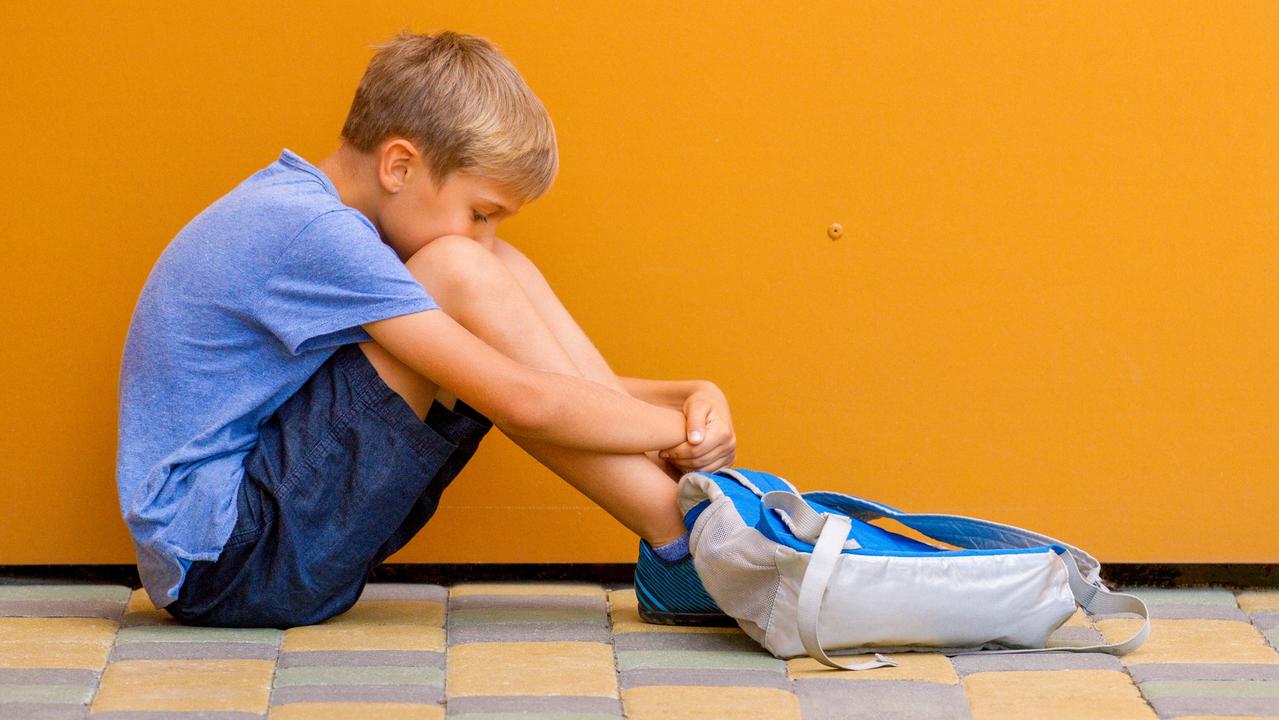School refusal: Where it’s happening, how to spot it
Two in five Queensland children from prep up are suffering from “pronounced” rates of school refusal, leading to low attendance rates and putting them at risk of falling behind classmates.

Schools Hub
Don't miss out on the headlines from Schools Hub. Followed categories will be added to My News.
Two in five Queensland children from prep up are suffering from “pronounced” rates of school refusal, leading to low attendance rates and putting them at risk of falling behind classmates.
One expert said the return to school following the Covid-19 pandemic for some children was akin to post-traumatic stress disorder, as the incidence of school refusal – where students have anxiety about attending class – grows.
School refusal is viewed as a major contributing factor to Queensland’s low school attendance rates, which only marginally improved in 2023 following the Covid-19 pandemic.
An exclusive Courier-Mail analysis of every Queensland school’s 2023 attendance rates, compared with 2019, has revealed the true level of decline.
Queensland’s overall school attendance rates went from 91.1 per cent in 2019 to 88.3 in 2023, the latest Australian Curriculum Assessment and Reporting Authority data shows.
The rates dropped in 2022 to 86.7 per cent largely due to the pandemic.
Regional and remote schools were the most likely to record low attendance rates, however several metropolitan schools recorded significant declines to below 80 per cent.
It included Kingston State College (88 per cent to 76 per cent), Zillmere State School (87 per cent to 78 per cent), and Pine Rivers and Victoria Point State High Schools (88 per cent to 79 per cent).
It comes following a Greens-commissioned Lonergan poll of 1003 Australian parents that revealed two in five families experienced school refusal.
Queensland Association of State School Principals president Pat Murphy said school refusal could impact students as young as prep.
Mr Murphy said school refusal had not been created by the pandemic, but had become more “pronounced” from the lockdowns and working from home environments.
“This is not about truancy,” Mr Murphy said.
“These are kids whose parents want them to go, but for whatever reason it is very difficult, and in most cases it’s not bullying.
“They can be fine one minute and then totally lose confidence out of the blue. It can be very challenging for families.
“There is a level of anxiety for whatever reason. And some students can tend to lose it when they don’t feel safe.”
Outgoing Education Minister Grace Grace said school refusal was a complex issue for teachers, principals, parents and carers to manage.
“It’s true. I don’t know what’s happened, I think Covid, because of the learning from home, all the curriculum that is now online, the availability of learning has spun a lot of that around a bit,” Ms Grace told The Courier-Mail.
“We do have to be conscious about those things, it’s one of those things that we do need to address, hence why back in 2020 we were the first state to do student mental health and wellbeing programs.”
Former principal turned Australian Catholic University academic Paul Kidson said the fallout from Covid had created a form of “post-traumatic stress” for some students.
“We are of the view that the impacts both socially and emotionally post Covid continue a lot longer than we anticipated,” Dr Kidson said.
“When some kids had to do remote learning, for them it was a great gift as they found school very hard. So when you have to come back, it can be a revision of the challenge.
“It’s only a small number of kids but it’s an important part,” he said.






